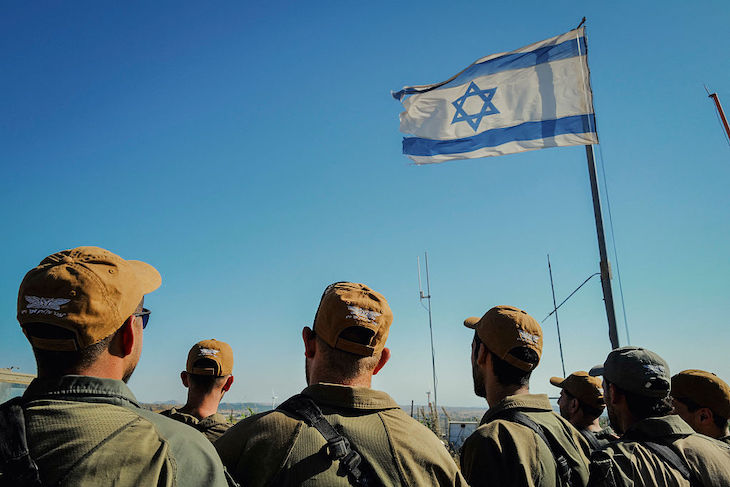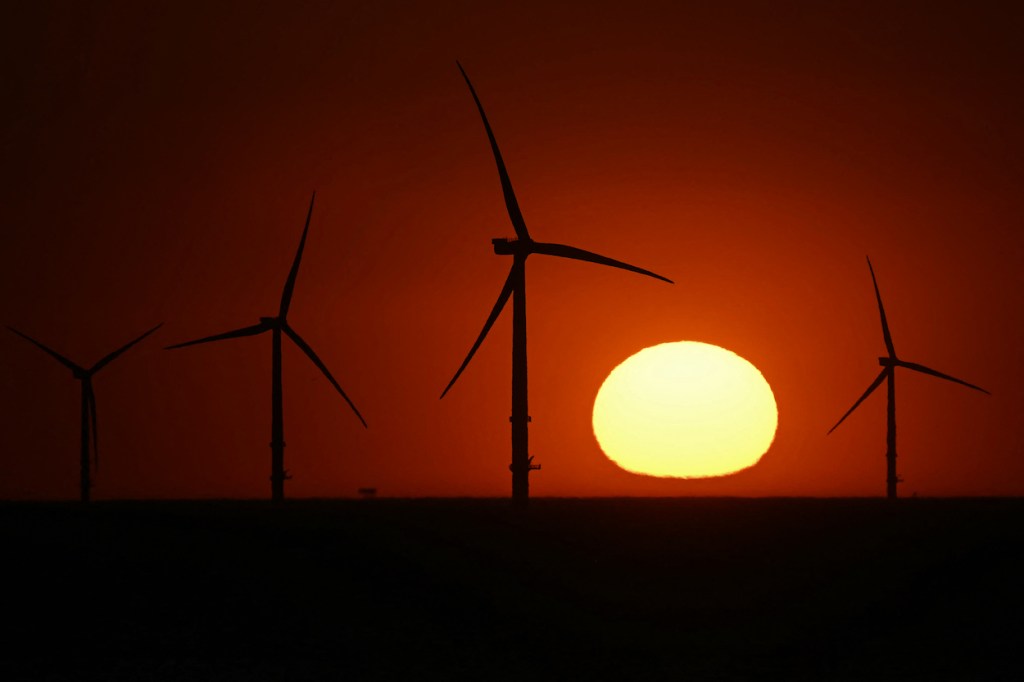Over the last 24 hours, southern Syria has seen a sharp escalation in violence involving Syrian government forces, local Druze militias, and Israeli airpower. The developments centre on the city of As-Suwayda and the surrounding region, home to much of Syria’s Druze population, and have drawn renewed attention to the complex relationship between the Druze community, the Syrian regime, and Israel.
Prospects for normalising relations between Israel and Syria have significantly worsened
The Syrian army has begun heavily shelling areas in and around As-Suwayda. Israeli aircraft launched strikes against regime positions in Suwayda and Daraa, and reportedly targeted a military convoy belonging to Abu Amsha, a Turkish-backed militia commander. Then, this morning, three Israeli drones entered Damascus airspace and struck the General Staff building in Umayyad Square – a move the Israeli Broadcasting Corporation described as a message to Syrian president Ahmed al-Sharaa. In response to the unfolding situation, Israeli prime minister Benjamin Netanyahu was granted permission to leave his court hearing early and returned to the Kirya for emergency consultations.
By this morning, Israel had moved reinforcements to its northern border. The IDF (Israel Defense Forces) reported that dozens of suspects attempted to infiltrate Israeli territory from Syria, specifically in the Khader area. In cooperation with the Border Police, Israeli forces worked to prevent infiltration and to disperse the gathering.
At the same time, a number of Druze Israeli civilians crossed the border fence into Syrian territory near Majdal Shams. Some of them were reportedly attempting to reach the front lines near Suwayda on foot, approximately 40 miles away, in order to defend fellow Druze communities under attack. Some of the Druze who infiltrated Syria yesterday were found to have weapons. The IDF stated that it is working to safely return those individuals. It emphasised that this is a serious incident that constitutes a criminal offence and endangers both the public and IDF personnel.
Israeli forces say they are continuing to monitor the situation and maintain readiness for a range of scenarios; Israeli media claimed that the airstrikes had helped Druze militias repel Syrian forces from parts of Suwayda.
What explains this sudden surge in hostilities – and why is Israel involving itself?
At the centre of the picture is the Druze minority. Numbering roughly one million across the region, the Druze are a religious community with roots in 11th-century Egypt and theological elements drawn from Islam, Greek philosophy, and other traditions. The religion is closed to converts, and Druze identity is passed on only by birth. A strong belief in reincarnation, strict community ethics, and a tradition of political pragmatism define Druze communal life.
In Syria, the Druze have historically tried to remain apart from major power struggles. But since the outbreak of the civil war, they have found themselves increasingly vulnerable, particularly as jihadist factions, including remnants of Isis, reassert themselves in the south.
Reports suggest that Druze communities in and around Suwayda had been under mounting pressure from both the Assad regime and Islamist groups. In late April, tensions escalated dramatically after a group of Syrian Druze were allowed to visit religious sites in Israel for a pilgrimage. Upon returning to Syria, they were accused by jihadist figures of being Israeli agents,. Clerics in several mosques reportedly called for jihad against the Druze.
Since then, there have been reports of targeted attacks, executions, and armed assaults on Druze areas. The Syrian Observatory for Human Rights has reported that more than 200 people have been killed in recent clashes; of those, 92 were Druze, including 21 civilians who were reportedly executed by government forces. A video circulated yesterday appearing to show Syrian soldiers forcibly shaving the moustaches of Druze men – a deliberate act of humiliation and disrespect. Such images have compounded the sense of crisis.
The violence has been carried out by forces loyal to Syria’s new president, Ahmed al-Sharaa. Al-Sharaa, who lacks international credentials and is perceived by some as a jihadist figure, has quickly become a source of both moral and strategic concern for Israeli policymakers. While some argue the killings reflect decentralised militias acting independently, the broader implications for Israel’s security posture and diplomatic strategy are clear.
Israel’s defence establishment has responded with both clarity and force. Following yesterday’s strikes, defence minister Israel Katz warned al-Sharaa that ‘the Syrian regime must leave the Druze in Sweida alone and withdraw its forces.’ He added: ‘Israel will not abandon the Druze in Syria and will enforce the disarmament policy we have decided upon. The IDF will continue to attack regime forces until their withdrawal from the area – and will soon raise the level of responses against the regime if the message is not understood.’
This broader context may explain Israel’s decision to intervene militarily. Although Israel has no formal relationship with the Druze across the border, it has a deep, enduring bond with its own Druze citizens – roughly 150,000 in number. These citizens are not just integrated but often serve at the very heart of Israeli society and national defence. Druze Israelis have long volunteered for the IDF, often serving in elite combat units, special forces, and leadership roles. Their loyalty and bravery have been recognised and respected across Israeli society. Many have paid the ultimate price, including during the Hamas-led attack on 7 October 2023, when Druze fighters were among the first to mobilise and defend Israeli communities. That day, described by some as a national reckoning, also proved a moment of profound solidarity between the Jewish and Druze populations of Israel – reaffirming a relationship built on shared sacrifice and mutual respect.
Speaking with me a few months ago, Khalifa Khalifa, a Druze Israeli journalist and former soldier, explained the sense of kinship many Druze feel with Jews in Israel and around the world. ‘We are Arabs who love the Jewish people,’ he said, describing how Druze identity has often brought the community into conflict with both Islamist and authoritarian regimes in the region. He explained how reincarnation beliefs, communal solidarity, and historical persecution have shaped Druze attitudes towards bravery, defence and belonging.
This may help explain why Israel is taking a keen interest in the fate of the Druze in Syria
This may help explain why Israel is taking a keen interest in the fate of the Druze in Syria. While humanitarian concern plays a role – Israel has allowed some wounded Druze Syrians into Israeli hospitals in the past – the logic is also strategic. Southern Syria is unstable, with multiple actors vying for control. Supporting local Druze forces may be a way for Israel to contain threats close to its border without deploying ground troops.
Meanwhile, prospects for normalising relations between Israel and Syria have significantly worsened. A proposed non-aggression pact, which may have involved Israeli withdrawal from recently captured Syrian territory, now appears politically untenable. Public trust is essential for any such arrangement, yet the current atrocities have deeply undermined confidence in Syria’s leadership. Inside Israel, there is growing discomfort with the idea of legitimising a regime associated with civilian executions and sectarian violence.
This morning, Israel’s Druze leadership issued a dramatic statement: ‘We call on all members of the community to prepare by any means necessary to cross the border in order to assist our brothers being slaughtered in Syria.’
The situation remains fluid. Turkey has raised its alert level but has not yet intervened. Syria has announced further reinforcements to the south. And within Israel, political leaders are monitoring developments closely. Whether this becomes a larger regional flashpoint or remains a limited conflict will depend on what happens next. For now, the events of the past day have put the Druze – and their unique position in the region’s tangled politics – back in the spotlight.








Comments